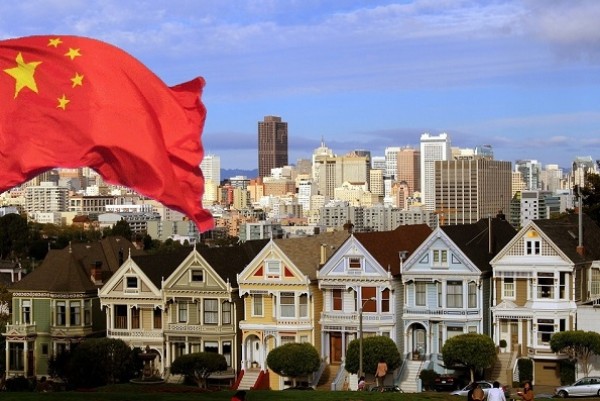| Chinese residential and commercial international property purchases in 2017 reached a new record | |

| Author: CSEBA / SEEbiz / CNBC |
| 10th September 2018 |
| BEIJING - Mainland Chinese buyers are expected to snap up an increasing amount of overseas real estate this year — even despite political resistance and sensitivity about such investments around the world. |
|
Chinese investments from infrastructure to property buying have been political hot potatoes during elections and beyond, with newly elected governments — such as Malaysia's — injecting uncertainty into projects and private residential projects viewed to be aimed at foreigners, many of whom are from mainland China. More drastically, New Zealand has banned many foreigners from buying existing homes as its government attempts to improve the affordability of residential property. Formerly, U.S. investors were seen as putting upward pressure on New Zealand property prices, but their interest has been dwarfed by a more recent influx of Chinese buyers. Despite the global resistance, mainland Chinese residential and commercial international property purchases in 2017 reached a new record of $119.7 billion, up 18.1 percent from the $101.4 billion in 2016, according to an annual report from Juwai, an online Chinese real estate portal. Since 2010, Chinese investors have acquired international property totaling more than $430 billion, the report added. Juwai expects mainland Chinese commercial and residential property investment to increase 3 to 8 percent this year from a year ago, bringing investment amounts up to $123.3 billion to $129.3 billion globally. The concerns about such investment include mainlanders' demand driving property prices up too much for domestic home buyers, and having a large Chinese population that holds increasing sway over local issues. One insider at a Chinese property company insisted, however, that investors coming from the world's second-largest economy have just had a stroke of "bad luck" in shouldering the blame for market forces. "The markets where concern about foreign buyers (have) been greatest are those with a combination of factors, usually including high population growth, constraints that limit the construction of new housing, cheap and available mortgage credit, and rapid price gains," said Carrie Law, CEO and director of Juwai. "Foreign and especially Chinese buyers have just had the bad luck of becoming visible in markets around the globe at the same time as interest rates hit extraordinary lows. Low rates, of course, lead to higher prices and hot markets, meaning that affordability fell," Law told CNBC. In fact, a large proportion of the price surges in large cities were driven by local investors and lenders, Law added. Juwai described the growth of outbound Chinese property investment in 2017 as "constrained" due to capital controls imposed by Beijing to prevent too much money from flowing out of the country. The concern is that large outbound flows could endanger the economy and currency. Asia and Europe were hot spots as Chinese investment in residential and commercial Asian property increased over 350 percent. Meanwhile, investment in Europe grew by well over 200 percent, according to Juwai. The U.S., Canada, New Zealand, and Australia all experienced significant drops in Chinese real estate investment. In the U.S. in particular, commercial property investment by Chinese investors fell by almost 52 percent, while residential purchases fell 18 percent. That was due to Beijing's capital controls, rising interest rates and a pullback by 2016's biggest investors, such as Anbang Insurance and Wanda Group. Juwai said it expects mainland Chinese commercial and residential property investment to increase 3 to 8 percent this year from a year ago, bringing investment amounts up to $123.3 billion to $129.3 billion globally. After all, policymakers may change their rhetoric against mainland Chinese property buyers when reality bites, Law suggested. "Rising interest rates, slowing markets, domestic mortgage lending restrictions, and a new sense of the fragility of global economic growth has caused policymakers in many locations to reevaluate their stance against foreign buyers. They may decide they prefer to have the investment after all," said Law. |
 |
|
| 23rd November 2024 | |
| China has good news for Croatian citizens | |
 |
|
| 7th November 2024 | |
| Pelagos net farm products presented at the Shanghai fai | |